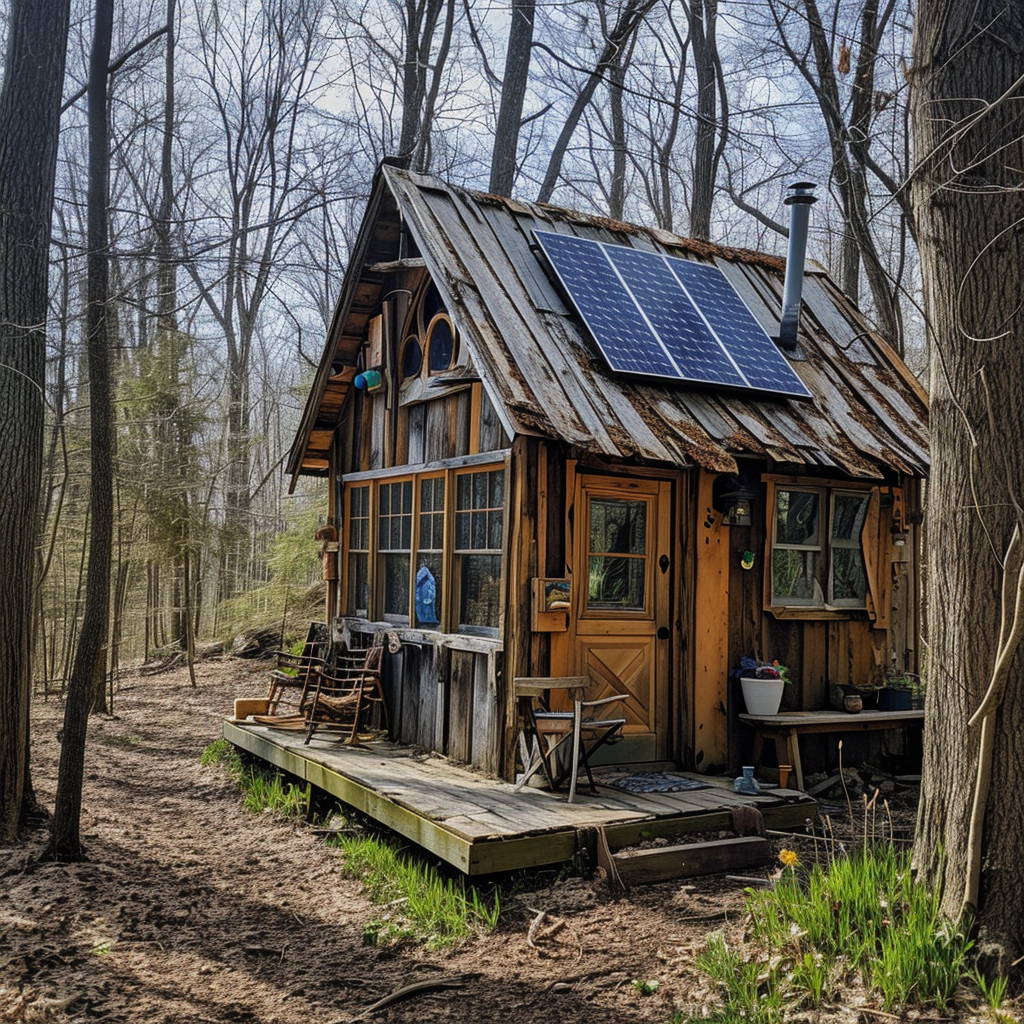Introduction
Can You Live Off-Grid In Michigan? To explore the world of off-grid living in Michigan, let’s dive straight into the introduction. Discover what off-grid living truly means and the benefits that come with it. Join us as we unravel the growing popularity of this lifestyle choice, and the exciting possibilities it offers for those seeking a self-sustainable and environmentally conscious way of life.
What is off-grid living?
Off-grid living is a self-sufficient lifestyle in which one is not connected to public utilities such as electricity, water, or sewer. Power is generated from renewable sources like solar panels or wind turbines. This eco-friendly approach reduces one’s carbon footprint and monthly expenses. Moreover, it offers a connection with nature and a sense of freedom from utility bills.
Efficient energy management is essential when transitioning to an off-grid lifestyle. LED lighting and insulation techniques can greatly optimize energy usage. Understanding weather patterns and the availability of sunlight or wind can also help plan activities accordingly. It is important to start small and gradually expand one’s system based on needs and budget. Researching local regulations and building codes is crucial for safety compliance.
By embracing an off-grid lifestyle, individuals can enjoy a more sustainable life and self-sufficiency. With proper planning and adaptation, this alternative way of life can offer a unique sense of fulfillment.
Benefits of living off-grid
Living off-grid offers numerous benefits for a unique lifestyle and freedom. Disconnecting from traditional power sources allows one to access these advantages.
- Self-sustenance: Relying on own resources to meet energy needs is made possible by off-grid living. Solar or wind power can be used to generate electricity without needing external input.
- Cost savings: Utility bills can be reduced or eliminated. Though the initial investment in renewable energy systems can be high, long-term savings are worth it.
- Environmental sustainability: Carbon footprint can be minimized and reliance on fossil fuels lessened by opting for an off-grid lifestyle. Using renewable energy sources contributes to a greener future.
- Freedom and flexibility: With off-grid living, individuals can live wherever they want, without the need for infrastructure networks. Spaces can be designed according to personal preferences.
Going off-grid encourages a closer connection with nature and the responsibility to conserve resources. To maximize the benefits, consider these suggestions:
- Maximize energy efficiency: Insulate spaces, use energy-efficient appliances, and incorporate natural lighting to reduce energy consumption.
- Utilize rainwater harvesting: Collect rainwater for gardening or flushing toilets, instead of depending on municipal water supply.
- Embrace sustainable practices: Compost, grow food, and recycle materials.
- Invest in battery storage systems: Store excess energy generated from renewables in batteries for later use.
By following these suggestions, individuals can optimize off-grid living, minimizing their ecological impact and maximizing independence. Off-grid living opens up possibilities to experience freedom while living sustainably. After all, who needs the stress of a mortgage when you can avoid your annoying neighbors forever?
Growing popularity of off-grid living
Off-grid living is becoming increasingly popular these days. People are disconnecting from conventional power grids and leading independent lives. Benefits include reduced energy consumption, fewer external resources needed, and a feeling of autonomy.
Environmental awareness is achieved through off-grid living, as individuals use renewable sources such as solar and wind power. It also leads to cost savings, with no electricity bills to pay. Plus, freedom from utility companies is a plus point, with no worries about price changes or power outages.
Sustainability is also part of the lifestyle, with rainwater harvesting, composting toilets, and organic gardening being some of the practices. And, there’s the connection with nature – feeling at one with the environment and enjoying the simple life.
Not only that, but off-grid living also brings enhanced self-reliance. People learn to grow their own food, conserve resources, and become accustomed to a simpler way of life – with plenty of personal growth opportunities.
It may be daunting to dive into off-grid living. But, it gives a chance to break away from the norm and live life independently. Don’t miss this amazing opportunity to lead a more sustainable and rewarding life – join the ever-growing off-grid community now! Why rely on the grid in Michigan when you can power up your off-grid adventure like a true Wolverine?
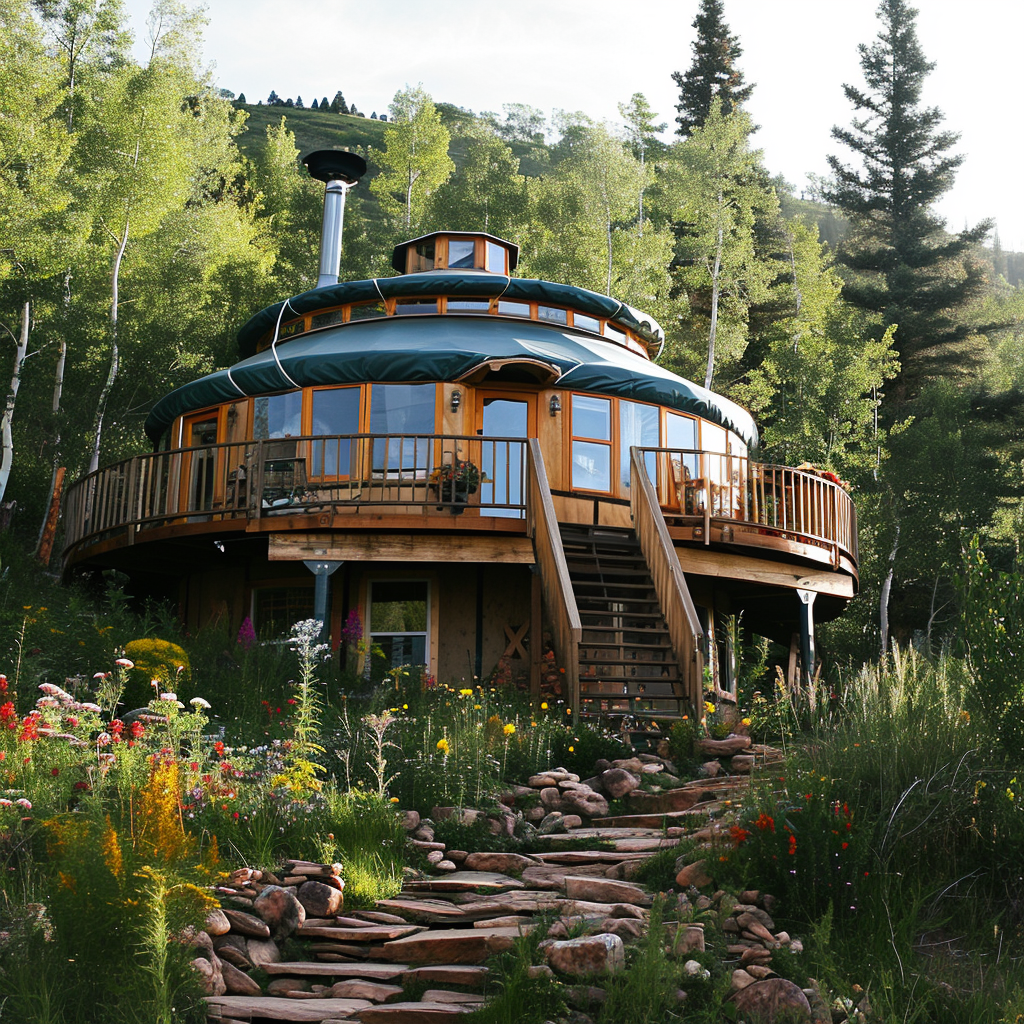
Off-grid options in Michigan
To explore off-grid options in Michigan and find solutions, delve into rural areas suitable for off-grid living. Consider the access to natural resources for sustainable living and existing off-grid communities for inspiration and guidance.
Rural areas in Michigan suitable for off-grid living
In Michigan, you can find picturesque landscapes and natural beauty – ideal for off-grid living! There are several rural areas that provide a simpler lifestyle away from the hustle and bustle of city life.
- North Region: Vast forests and breathtaking lakes can be found in the northern region – allowing you to live self-sufficiently.
- Upper Peninsula: Rugged terrain and stunning wilderness give you the chance to disconnect from modern conveniences and embrace a more sustainable lifestyle.
- Thumb Area: This region has plenty of space for those looking to go off-grid. You can take advantage of Lake Huron’s resources whilst being secluded.
- Lake Michigan Coastline: Alongside beautiful views, you can also harness wind energy and use the lake’s resources for off-grid living.
- Central Michigan: Rolling hills and open spaces can be found in Central Michigan, perfect for remote living. Plus, its agricultural potential ensures self-sustainability.
- Southern Border: The southern border has more people, but still offers off-grid living – you’re close to cities, but still have solitude.
And that’s not all! Michigan has hidden valleys tucked into the mountains, and remote islands in the Great Lakes – each with its own charm and self-sustainability options.
Start your journey today and create a life that is truly off the grid. Enjoy nature’s bounty and the fulfillment that comes with sustainable independent living.
Access to natural resources in Michigan for off-grid living
Michigan’s forests offer timber for constructing and firewood. Plus, water bodies provide freshwater and potential hydroelectricity. Sunlight is plentiful, so solar power is a great option. Wind energy is available too, through turbines. Before going off-grid, learn about sustainable resource management. Unplug, unwind, and join Michigan’s off-grid communities – where solar panels are outshined by camaraderie.
Existing off-grid communities in Michigan
Michigan offers many off-grid communities, providing an escape from the hustle and bustle of city life. One such community is the Earthshine Eco-Village located in Jackson County. It is powered by renewable energy sources such as solar panels and wind turbines, and residents practice organic farming and rainwater harvesting.
Lost Valley Education and Event Center in Benzie County focuses on education and sustainable living through workshops, classes, and events. Here, residents gain the tools and knowledge to live off-grid successfully.
The Bayshore Woods Cooperative in Antrim County encourages collective decision-making processes and shared resources. Residents here work together to maintain their own water systems, gardens, and alternative energy sources.
Creating an off-grid home in Michigan is also possible. Utilizing renewable energy sources such as solar panels or wind turbines, individuals can reduce their reliance on traditional power grids while enjoying the benefits of living sustainably. Researching local regulations concerning zoning laws and permits is essential. Additionally, joining online forums or attending workshops can provide valuable insights from experienced individuals. Living off-grid in Michigan can become a reality for those seeking a break from the conventional way of life.
Challenges of living off-grid in Michigan
To meet the challenges of living off-grid in Michigan, you need to navigate the harsh winters and extreme weather conditions. Finding suitable land for off-grid living in Michigan is another aspect to consider. Lastly, be prepared for the construction and maintenance considerations specific to off-grid homes in Michigan.
Harsh winters and extreme weather conditions in Michigan
Michigan is notorious for its tough winters with extreme weather conditions. This poses unique difficulties for off-gridders. Bitter cold, heavy snowfall, and strong winds make it hard to live sustainably.
Cold temperatures can last for weeks and threaten humans and infrastructure. People need to be prepared: well-insulated homes, reliable heating systems, and alternative energy sources that may not work so well in winter.
Snow can block roads and increase the risk of roof collapse. Off-gridders must be proactive with snow removal and have backup plans for emergencies.
Michiganders are resilient and embrace winter with traditional activities like ice fishing and hunting. They also use innovative tech like geothermal heating systems and underground shelters.
Earthaven Ecovillage, located in Antrim County, is one of the largest off-grid communities in the U.S. It demonstrates how nature and community can conquer harsh winters.
Off-grid living in Michigan is no easy task. But resourcefulness and determination make it possible to thrive, no matter the environment.
Finding suitable land for off-grid living in Michigan
Living off-grid in Michigan is a challenge but a rewarding one! Location is key. Optimal climate and resources are essential. Michigan’s landscapes give many chances, from forests in the U.P. to farmland in the L.P. Access to water is crucial for off-grid living, and Michigan has plenty of lakes, rivers, and ground reserves.
Research zoning regulations before purchasing land – some areas have restrictions or requirements for off-grid living. Affordability is a factor too – check out amenities, infrastructure, and taxes. Intentional communities in Michigan foster camaraderie among individuals who find freedom and sustainability in the lifestyle. Michigan EcoNet states that over 40 intentional communities exist in the state. Building an off-grid home in Michigan is like making a snowman in summer – it requires determination and insulation.
Construction and maintenance considerations for off-grid homes in Michigan
It’s time to ‘off the grid and chill’ in Michigan! Having an off-grid home in the state requires careful consideration. Location is key. Make sure it has access to resources, like sunlight for solar panels and proper drainage. Building materials should be environmentally friendly and able to withstand Michigan’s climate.
Energy sources should meet your needs – consider solar power, wind turbines, or biomass generators. Water supply can come from rainwater or a well. Create a maintenance plan to check on solar panels, roof integrity, and other systems.
When it comes to waste disposal, look into sustainable options like composting toilets or septic systems. Michigan has many natural resources to take advantage of – forests, freshwater reserves, and renewable energy potential. Around 1% of homes in the state are already utilizing off-grid systems. So, get ready to go eco-friendly!
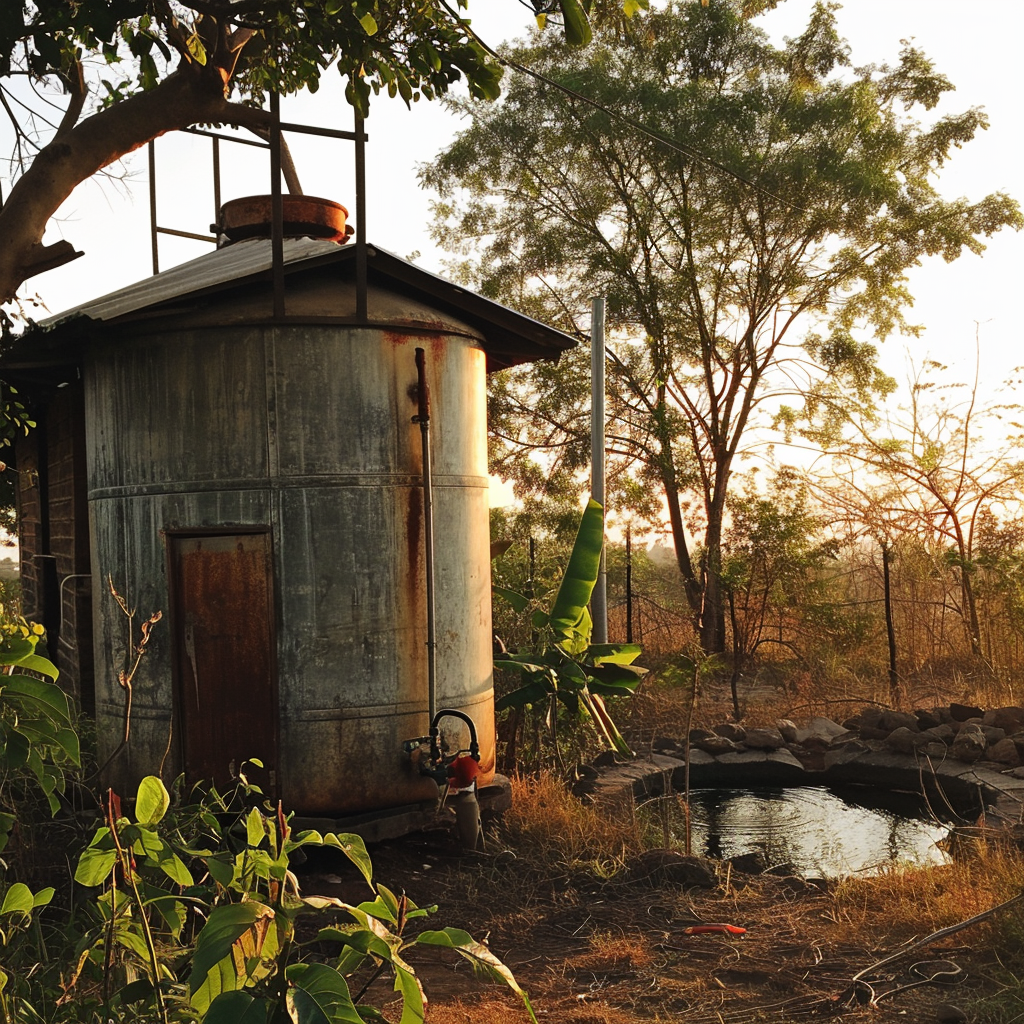
Sustainable practices for off-grid living in Michigan
To adopt sustainable practices for off-grid living in Michigan, explore solar energy options, water collection and conservation methods, and waste management strategies. Embrace the power of solar energy, conserve water resources efficiently, and implement effective waste management techniques for a self-sufficient lifestyle in Michigan.
Solar energy options in Michigan
Michigan is an excellent spot to tap into solar energy! Its plentiful sunlight and cutting-edge solar tech make it perfect for off-grid living. Residents get credits for the excess energy they generate.
Plus, there are options like roof-mounted panels, ground-mounted systems, and community solar gardens. The state also has incentives and rebates to make solar more affordable.
You can even store energy generated during the day and use it later. This boosts self-sufficiency and reduces reliance on the grid.
The state also has multiple solar farms – reducing emissions and meeting renewable energy goals.
When considering solar energy in Michigan, you need to think about site suitability, installation costs, maintenance needs, and financing options. It’s best to consult with local installers or pros to get tailored guidance.
Water collection and conservation methods
Rainwater harvesting can be done with a rain barrel or a system with gutters and storage tanks. Greywater recycling means reusing water from sinks, showers, and washers for non-potable tasks like irrigation. Low-flow toilets, faucets, and showerheads conserve water without sacrificing functionality. Native plants and drip irrigation systems can minimize outdoor water usage.
Maintenance of these systems is key to efficiency. Regularly monitor for leaks or inefficiencies to make the most of available water resources. To further improve water conservation: dual-flush toilets let users choose flushing volumes; mulch retains soil moisture; and promptly fix leaks to save money and water. Adopting these practices means individuals can contribute to sustainable off-grid living in Michigan.
Waste management strategies for off-grid living in Michigan
Waste management in off-grid living is a challenge. But, sustainable strategies can help overcome these obstacles and make a clean environment for Michigan’s off-grid residents.
To manage waste, off-grid dwellers need certain strategies. Here’s a table of practical waste management techniques that work for Michigan’s off-grid living:
| Waste Management Strategies | Description |
|---|---|
| Composting | Turn organic waste into nutrient-rich soil fertilizer. |
| Recycling | Separate recyclable materials, like paper, plastic, glass, and metal, and recycle them properly. |
| Reusing | Repurpose items instead of discarding them to reduce waste. |
| Proper Disposal | Properly dispose of non-recyclable and hazardous waste to prevent environmental pollution. |
| Greywater Treatment | Treat and reuse household wastewater for irrigation or flushing toilets. |
For better waste management in off-grid living in Michigan, there are more things to consider. For example, store different types of waste in designated areas to make sorting and disposal easier.
Here are a few tips to further enhance waste management:
- Implement a community composting system: Get off-grid communities to work together by creating a central composting facility. Residents can put organic waste here, and it will foster a sense of community and use resources efficiently.
- Educate residents on recycling: Hold workshops or info sessions to teach people how to recycle different materials properly. Increase awareness about recycling and its benefits for the environment.
- Encourage upcycling initiatives: Inspire projects that transform discarded items into useful products through upcycling techniques. This reduces waste and promotes artistic skills and resourcefulness.
By following these suggestions, off-grid dwellers in Michigan can establish sustainable waste management practices. These will minimize their lifestyle’s environmental impact, and also create a sense of responsibility and community engagement. Waste management is an important part of off-grid living, helping to make a cleaner, more sustainable future. Plus, you don’t have to worry about nosy Wi-Fi networks stealing your privacy!
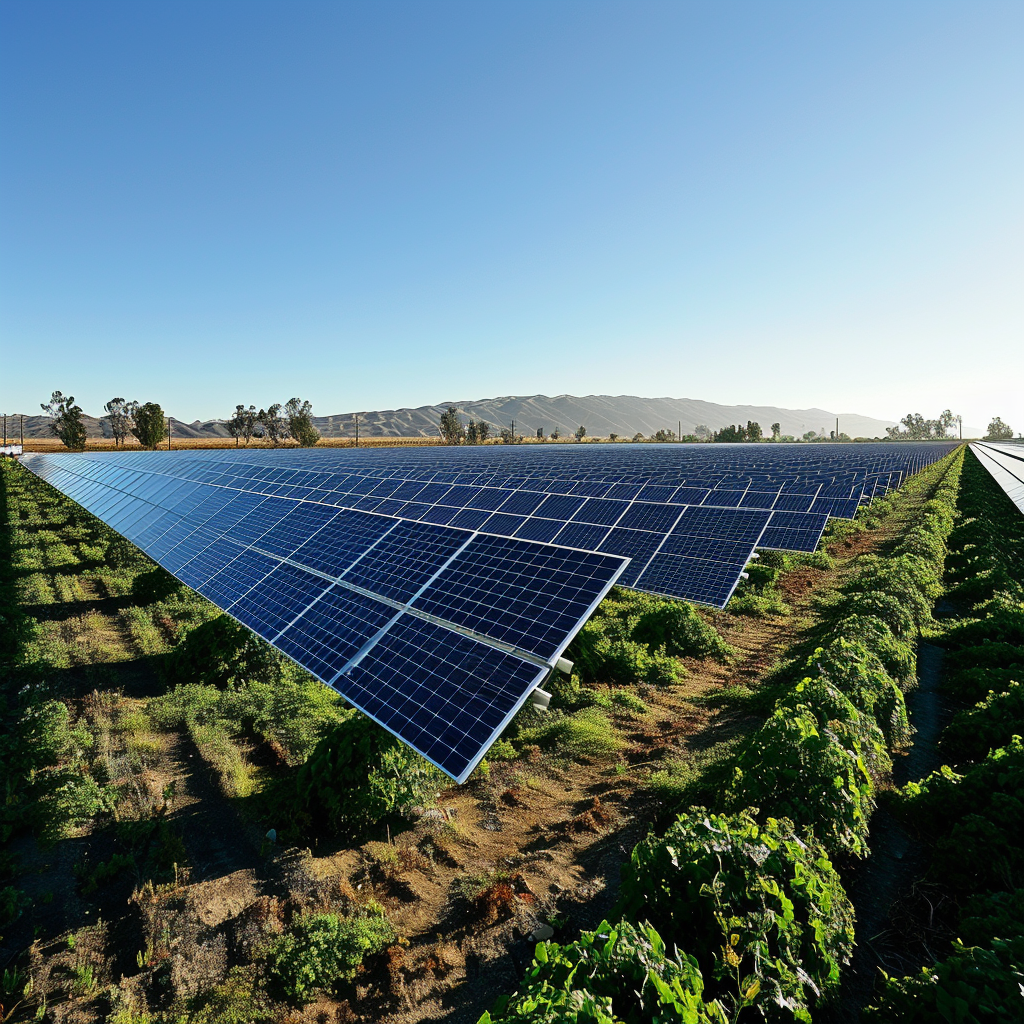
Legal and regulatory considerations for off-grid living in Michigan
To navigate the legal and regulatory considerations for off-grid living in Michigan, familiarize yourself with building codes and permits for off-grid structures, zoning restrictions and land-use regulations, and the impact of off-grid living on property taxes in Michigan. Each sub-section offers essential insights and solutions for those looking to pursue an independent lifestyle in the state.
Building codes and permits for off-grid structures in Michigan
It’s essential to check with the city before beginning any construction. This is because in addition to the codes mentioned below, local jurisdictions might have extra requirements. Specialized off-grid systems like solar and wind power could have certain guidelines that should be followed.
Michigan has building codes and permit requirements to safeguard residents and their properties. This came about when authorities realized the need for making sure off-grid structures meet safety standards.
So, if you are dreaming of off-grid living in Michigan, ensure that your zoning restrictions and land-use regulations won’t cause trouble with your tiny cabin.
Zoning restrictions and land-use regulations
Are you dreaming of off-grid living in Michigan? Here’s what you need to know!
Zoning districts, setbacks, building codes, and environmental considerations are all key factors to consider before embarking on your adventure.
Zoning districts outline the permitted uses for each area. Make sure your plans align with the regulations.
Setbacks refer to distances between structures and property lines, and must be followed for safety.
Building codes must be followed during construction, although some exemptions may apply.
Environmental considerations include obtaining necessary permits if your plans involve modifications that may impact natural resources. Research and familiarize yourself with all pertinent regulations – seeking legal advice can help navigate them smoothly.
Property taxes still apply, so don’t think you can outrun the taxman!
Off-grid living and property taxes in Michigan
Are you considering off-grid living in Michigan? Property taxes are a unique consideration that must be addressed. Here are five things to keep in mind:
- Property tax is still applicable for off-grid properties, even if not connected to the traditional grid.
- Tax is based on the property’s assessed value, which includes land size, improvement value, and market conditions.
- Exemptions can be applied for certain renewable energy systems, like solar panels or wind turbines.
- It’s important to properly assess and report any improvements to your off-grid property to ensure accurate taxation.
- Consulting with a tax professional or local authorities can help understand taxation regulations for off-grid living.
When it comes to off-grid living and property taxes in Michigan, stay informed of the latest laws and regulations. Doing so can help avoid any unexpected tax burdens and ensure compliance.
Off-grid living was once a common way of life in rural Michigan during the early settlement period. But now, modern times have brought electricity and utility grids to the region. Engaging in off-grid living requires careful consideration of property taxes. By understanding the intricacies of taxation regulations, you can enjoy the benefits of an independent lifestyle.
Need assistance off the grid? Michigan offers a strong community support network, so you won’t feel as disconnected as your electricity bill!
Community support and resources for off-grid living in Michigan
To navigate the off-grid lifestyle in Michigan seamlessly, find solace in the community support and resources available. Benefit from networking opportunities with fellow off-grid residents in Michigan, tap into local organizations and support groups dedicated to off-grid living, and ensure access to healthcare and emergency services in rural off-grid areas. Embrace the support system available for a fulfilling off-grid experience in Michigan.
Networking opportunities with other off-grid residents in Michigan
Build your sustainable lifestyle by connecting with fellow off-grid residents in Michigan! Networking offers lots of great benefits, like exchanging knowledge, resources, and support. Here are some great ways to get plugged in:
- Join online forums and social media groups dedicated to off-grid living in Michigan.
- Attend local events and workshops that focus on off-grid living.
- Participate in work exchanges and WWOOFing programs.
- Collaborate with off-grid interest groups.
- Join local meetups designed for off-grid residents.
- Explore skill-sharing networks to teach or learn.
You can also explore intentional communities like White Pine Sanctuary and EcoVillage. These offer unique opportunities to make meaningful connections and learn more about the joys and challenges of off-grid living.
In recent years, networking has been essential to the growth of the off-grid community in Michigan. It helps residents foster a sense of unity and camaraderie while embracing their commitment to self-sufficiency and environmental consciousness. So, whether you’re a hermit looking for company or just really hate paying utility bills, Michigan’s got some off-grid support groups that’ll make you feel right at home.
Local organizations and support groups for off-grid living
Michigan’s off-grid living scene is thriving! There are many organizations and support groups which provide info, help and a sense of community. These include:
- Michigan Off-Grid Living Association: Offers workshops, networking and expert advice.
- Sustainable Michigan: Offers workshops, grants and community initiatives.
- The Off-Grid Homesteaders Network: Connects people for knowledge sharing and experiences.
- Permaculture Michigan: Encourages off-grid living with educational resources.
- Michigan Energy Options: Assists with energy efficiency and renewable energy projects.
Plus, there are local farmer’s markets to get fresh produce and alternative energy cooperatives to invest in renewable sources. For a successful transition, it’s wise to reach out to these orgs early on. They can help to avoid any challenges that come with the off-grid way of life. And if you live off-grid in Michigan, your zombie survival chances are higher than finding a doctor nearby!
Access to healthcare and emergency services in rural off-grid areas of Michigan
Living off-grid in Michigan? It’s essential to be well-prepared. Basic life-saving techniques like CPR and a comprehensive first aid kit are must-haves. Local support networks are also key. Neighbors can come together to provide immediate assistance until professional help arrives. Modern technology can bridge the gap too. Telemedicine services enable remote consultations with doctors. Plus, investing in local emergency response initiatives like volunteer-led ambulance services or EMT training, reduces response times. In Michigan, community support is like a warm fireplace—it keeps you cozy and connected.
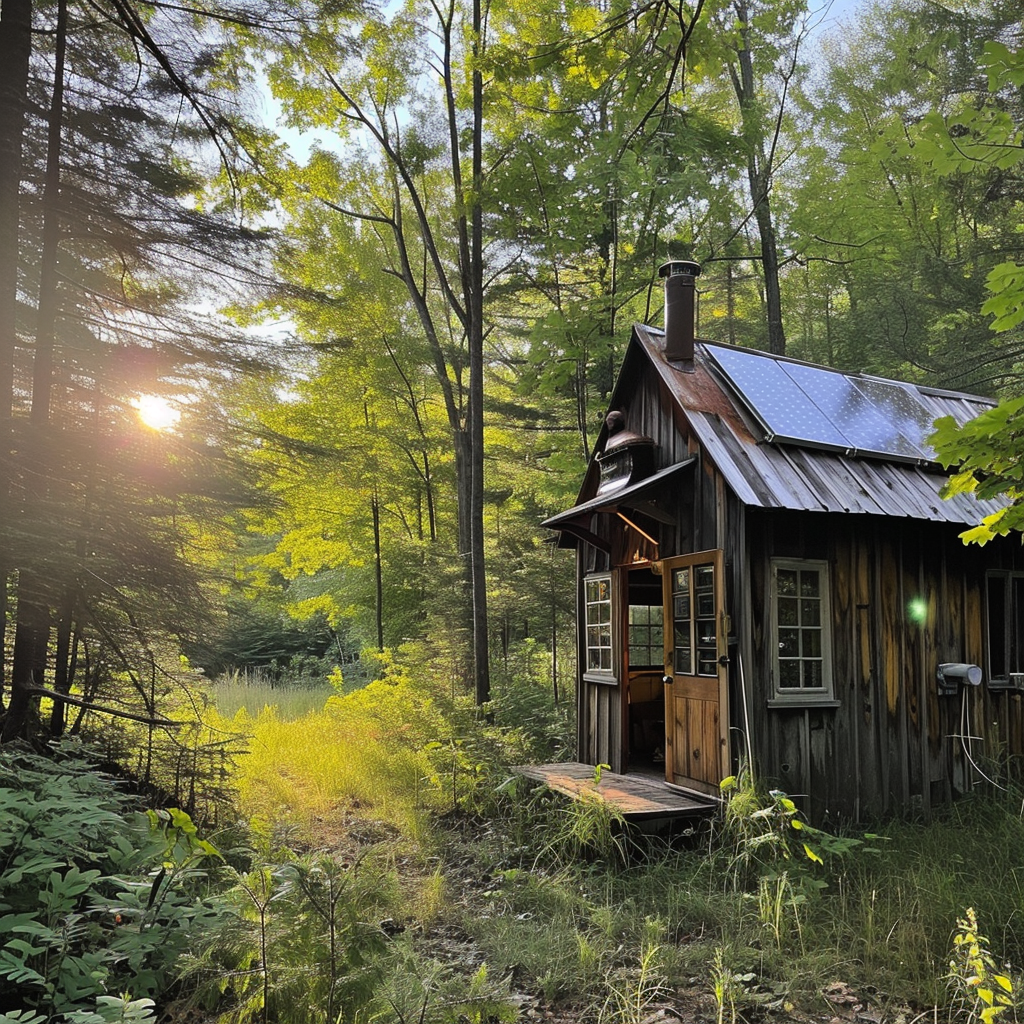
Conclusion
To make an informed decision about off-grid living in Michigan, consider the following. Is off-grid living in Michigan right for you? Explore the feasibility and benefits of this lifestyle to determine if it aligns with your values and goals. Finally, gain a deeper understanding of the practicality and advantages of off-grid living in Michigan.
Is off-grid living in Michigan right for you?
Off-grid livin’ in Michigan could be a great fit for some folk! Natural resources, beautiful views, and a simpler life – what’s not to love? The sense of independence and self-reliance that comes with it can be powerful. Plus, low costs and reduced environmental impact are attractive. But don’t forget the harsh winters, limited amenities, and need for thorough planning. Whether off-grid is right for ya depends on your own prefs and priorities.
To make it work, you’ll need to research renewable energy sources, develop self-sufficiency skills, and build a support network. These tips can help you adapt to the unique life in Michigan. Livin’ off-grid may sound tempting, but if you need Netflix to survive, it’s gonna be a dark and lonesome winter.
Final thoughts on the feasibility and benefits of off-grid living in Michigan
Living off-grid in Michigan is not only possible, but also beneficial. The state’s natural resources, like sunlight and land, make it ideal. Plus, utility bills are lower and carbon footprints smaller.
Solar panels can be used to power homes in remote regions. This means modern technology can be used without traditional grid systems.
Agriculture is another way to be self-sufficient. Crops and livestock mean less reliance on outside food sources and healthier eating habits. Plus, living off the land brings connection to nature often missing in cities.
Off-grid living in Michigan promotes conservation and environmental responsibility. Reducing resource consumption helps preserve Michigan’s beauty. This encourages sustainable practices such as water conservation and waste management.

